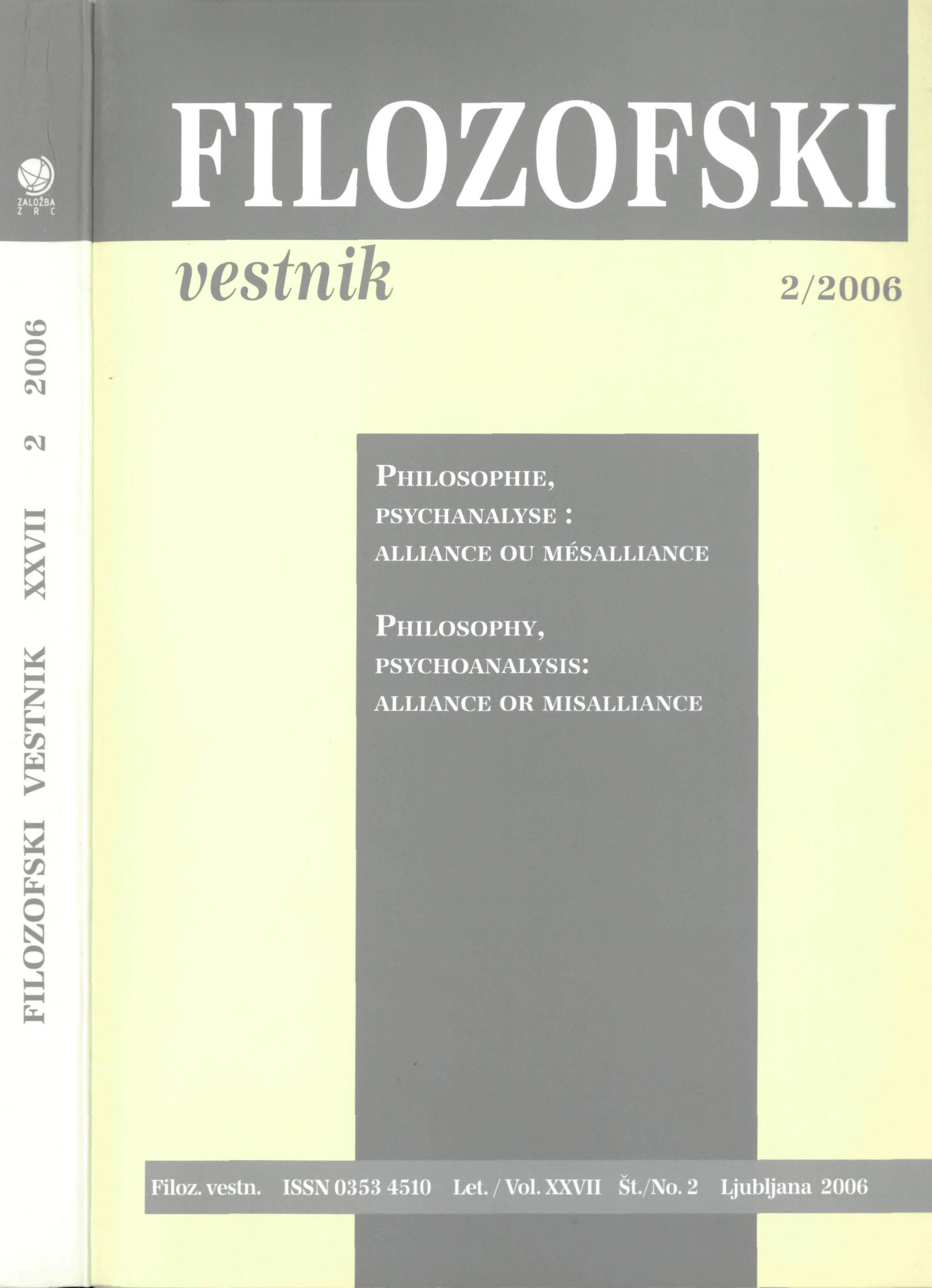The Experience of Psychoanalysis
Abstract
To this very day some philosophers cannot forgive Lacan and psychoanalysis that it dares to transmit the lack – of total and unquestionable clarity, for example – without relying solely on the universality that in philosophy remains the main player. On the other hand, neither Freud nor Lacan trusted philosophy. Indeed, by overestimating knowledge, philosophers, they argue, strive to cover up the lack in being. Freud situated philosophy in the field of Weltanschauung, namely as a discipline and practice of presenting a picture of the self-contained world that is free from incoherence. Psychoanalysis, on the contrary, by allowing the unconscious to interpret thoughtlessly remains in the position of apensé. Thus instead of trying to account for philosophical error for the benefit of philosophy, psychoanalysis aims to show that a philosophical error – which consists in a paranoiac effect of causally linking being and thought, and making no room for illusion – can only be accounted for by the subject.Downloads
Download data is not yet available.
Downloads
Published
2007-01-01
How to Cite
Wolf, B. (2007). The Experience of Psychoanalysis. Filozofski Vestnik, 27(2). Retrieved from https://ojs.zrc-sazu.si/filozofski-vestnik/article/view/3166
Issue
Section
Folisophie
License
Authors guarantee that the work is their own original creation and does not infringe any statutory or common-law copyright or any proprietary right of any third party. In case of claims by third parties, authors commit their self to defend the interests of the publisher, and shall cover any potential costs.
More in: Submission chapter





